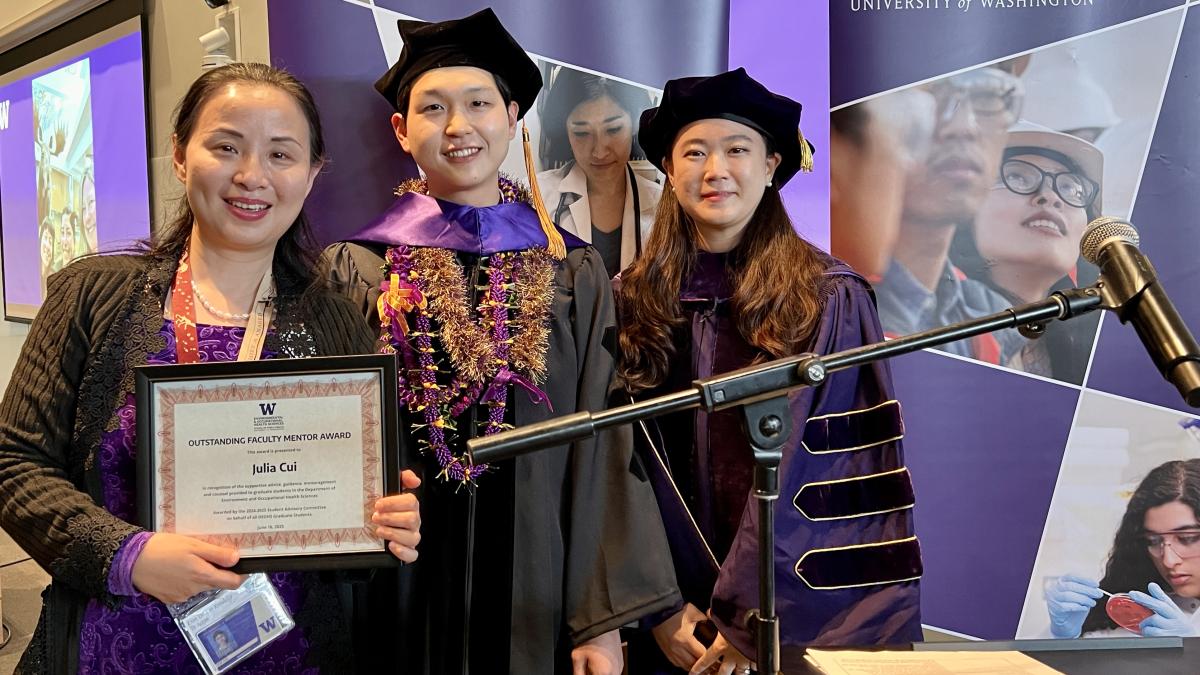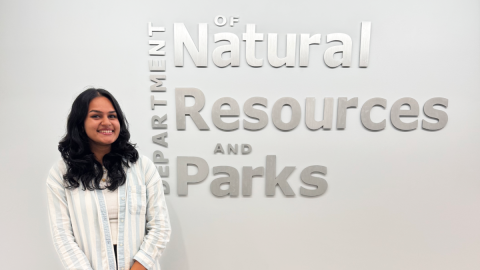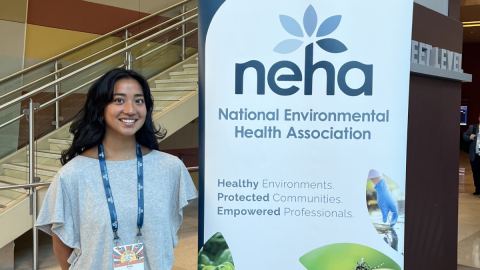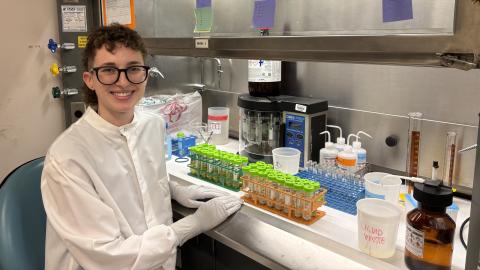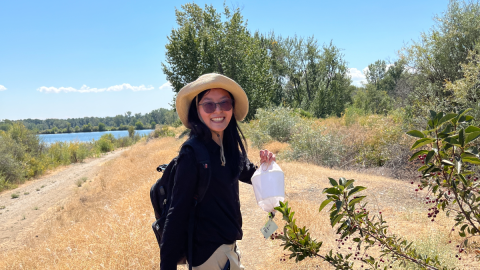As an environmental toxicologist and director of the UW Environmental Health and Microbiome Research Center (EHMBRACE), Julia Yue Cui is extremely busy — but never too busy for her students.
To her mentees, Cui’s door is always open, in addition to the weekly one-on-one meetings she holds with each member of her lab in the UW Department of Environmental & Occupational Health Sciences (DEOHS).
“She constantly makes herself available to guide students through research, career development and personal challenges, often during the most demanding times,” said Sarah Kim, a recent PhD graduate advised by Cui, a DEOHS professor. “She fosters a lab environment grounded in scientific integrity and compassion.”
Kim and Joe Lim, another recent PhD graduate in Cui’s lab, presented Cui with the DEOHS Outstanding Faculty Mentor award at the DEOHS graduation and end-of-year celebration on June 16.
The award is given annually by the DEOHS Student Advisory Committee to a member of DEOHS who has shown particular dedication to mentorship.
.jpg)
Surmounting challenges together
During the early months of the COVID-19 pandemic, stay-at-home orders slowed the lab’s usual rapid pace of experiments investigating how environmental chemicals and the microbiome interact to influence human disease.
Cui quickly instituted virtual check-ins for the lab group and created opportunities for maintaining community and boosting morale, Lim recalled.
Lim also leaned on Cui when he was struggling with multiple deadlines during his PhD. Her response was supportive and empathetic.
“She shares her own experiences, including setbacks, with transparency, modeling authentic leadership and resilience,” Lim said.
Youjun Park Suh, another recent PhD graduate advised by Cui, highlighted her “exceptional ability to balance intellectual challenge with compassionate guidance.”
“She connects students with professional networks, secures resources for specialized training, and cultivates critical thinking by challenging assumptions while providing the support needed to overcome obstacles,” Suh said.
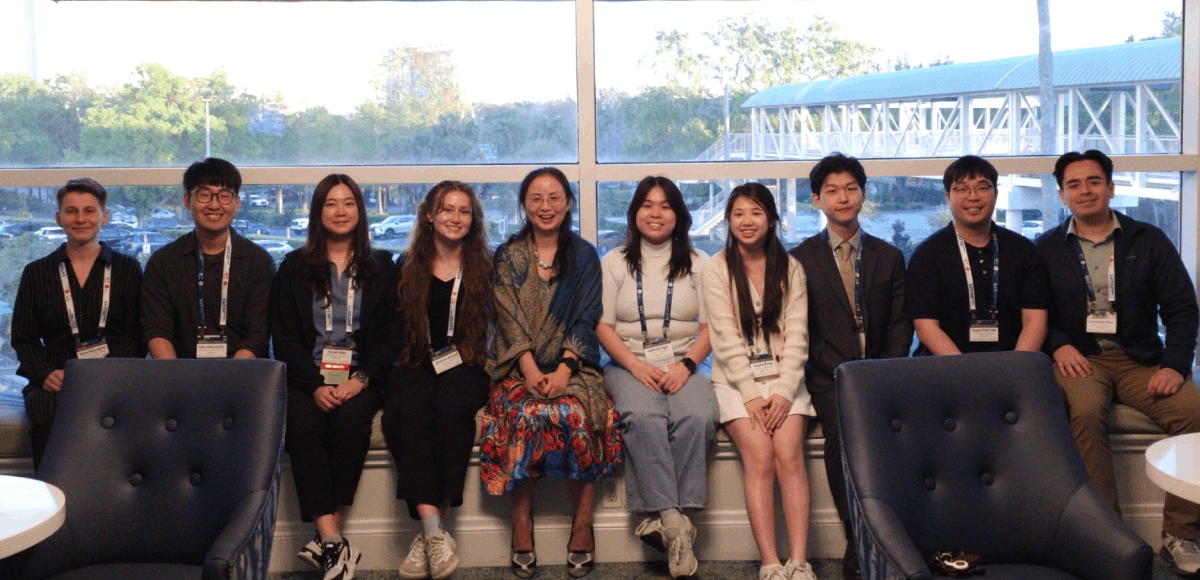
Innovation and inclusion
To investigate how flame retardants and other toxic environmental chemicals impact the gut microbiome, Cui trains her students in cutting-edge methods including high-throughput screening, computational modeling and AI-driven analysis.
She has extended that training to undergraduates through serving as a mentor in the Supporting Undergraduate Experiences in Environmental Health (SURE-EH) program, housed in DEOHS. In the program, students from groups underrepresented in biomedical and behavioral sciences conduct paid independent research with support from faculty.
“Julia is deeply committed to diversity and student success,” Lim said, noting that her SURE-EH mentees have achieved prestigious scholarships and co-authored peer-reviewed research papers under her guidance.
Solving public health problems
Cui’s supportive approach inspires her mentees to spread their wings, developing their own ideas to solve complex public health problems. Their accolades speak for themselves, from recognition at regional and national meetings of the Society of Toxicology to a Magnuson Scholar award for Lim and a Carl Smith Graduate Student Award for Kim.
“It was through her efforts that each and every lab member was successful in their training as an environmental health scientist,” Lim said. “Her guidance and suggestions have helped me form my own ideas and effective communication methods, and have shaped the type of mentor I would like to be.”
Speaking about Cui’s “unwavering commitment to nurturing the next generation of environmental public health scientists” at graduation, Kim summed it up: “She is not only our mentor but also an advocate, role model and source of strength to us.”
